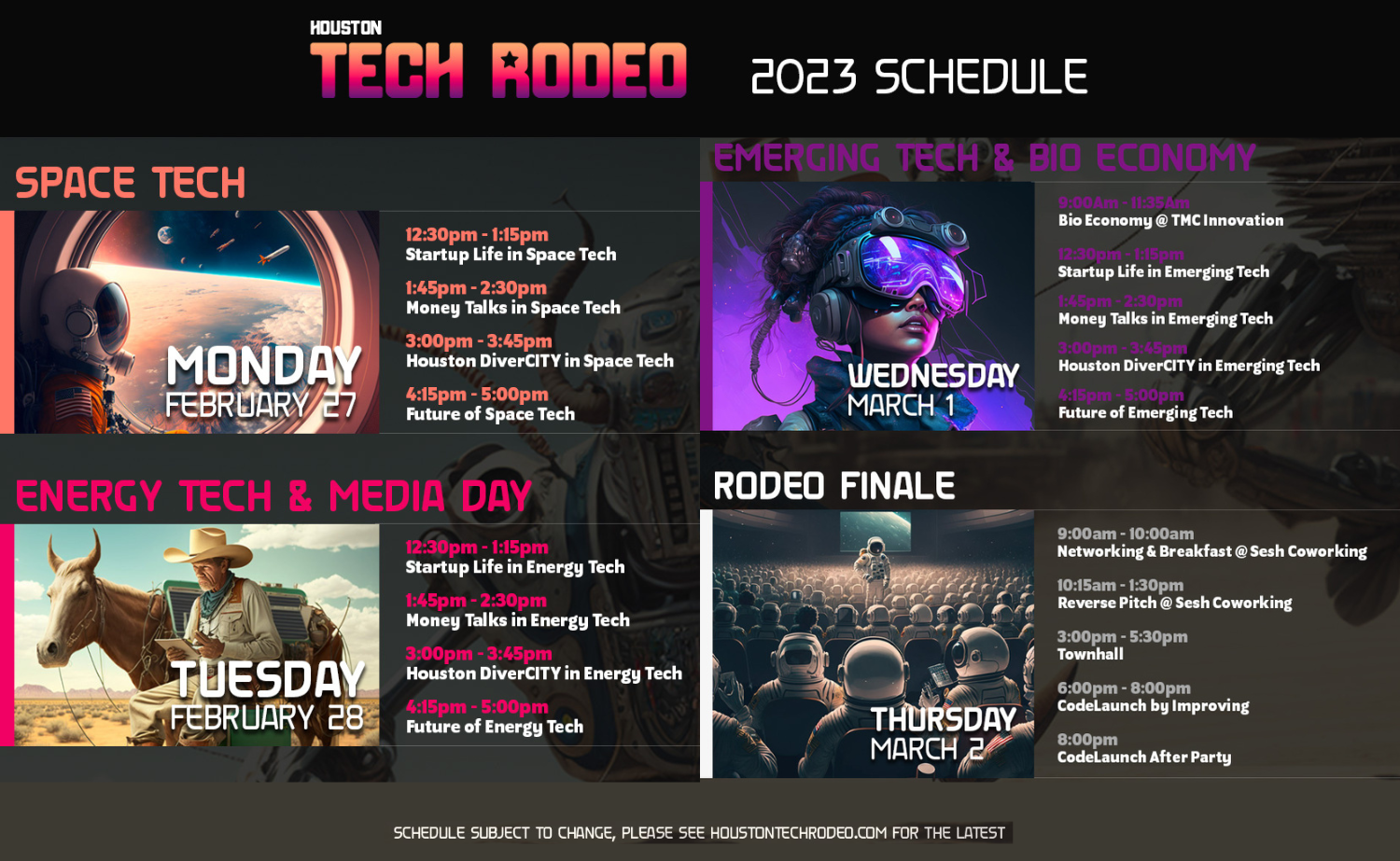Next week, Houston Exponential's annual week of innovation and networking is taking place. Here are five things you need to know before you go.
1. New year, new name.
Houston Tech Rodeo, which originated in 2020, has been rebranded to H-Town Roundup, but the week of innovation and entrepreneurship still has the same goal of providing programming and events that connect and educate Houstonians.
On a recent episode of the Houston Innovators Podcast, Natara Branch, CEO of Houston Exponential, says the change is meant to make for a more inclusive experience for entrepreneurs of small businesses, something she's seen a need for since she took on her role last year.
"This year, we've had the better part of a year to think about what can be different and how can we serve the founder," she says.
Branch explains that some members of the Houston community confused the event for being associated with the Houston Livestock Show and Rodeo or for being only for true tech people. Branch says the wanted to open the door a little wider to entrepreneurs who are innovative without necessarily working in technology.
"That's not what we wanted — to exclude anyone," she says. "H-Town Roundup is going to allow us to be more inclusive."
2. It's completely free to attend.
Dozens of events are taking place around town, and all are free to Houston entrepreneurs, investors, and more. Simply register for anything you're able to attend.
For reference, a full, detailed agenda is available online too.
3. There are two featured events.
Need to make some priorities? This year, there are two featured events for HTR.
- Tech and Tequila Talk powered by Blue People at 5 to 7:30 pm, on Tuesday, February 27, at the UH Tech Bridge Innovation Center.
- CodeLaunch Houston at 4 to 9 pm, on Wednesday, February 28, at Bayou Music Center.
4. Introducing: The Founder Lounge.
For attendees with the founder pass, The Founder's Lounge at Esperson Building in downtown is open Monday through Thursday from 10 am to 3 pm next week.
The full agenda of talks planned at the lounge is online.
5. Find the activity zones.
HTR again is rotating venues. Here's where and when you can expect to find HTR activities.
- Sunday (1 to 5 pm) - Esperson Building
- Monday (8 am to 12:30 pm) - TMC Innovation
- Monday (1:30 to 5 pm) - The Cannon Downtown
- Tuesday (1 to 7:30 pm) - UH Tech Bridge
- Wednesday (10 am to 1 pm) - Esperson Building
- Wednesday (4 to 9 pm) - Bayou Music Center
- Thursday ( 8 am to noon) - HCC Central Campus
- Thursday (1 to 7 pm) - Greentown Labs
- Friday (9 am to 3:30 pm) - the Ion
- Saturday (10 am to 2 pm) - Esperson Building

 Head to houstontechrodeo.com for up-to-date schedule information. Graphic courtesy of HX
Head to houstontechrodeo.com for up-to-date schedule information. Graphic courtesy of HX



